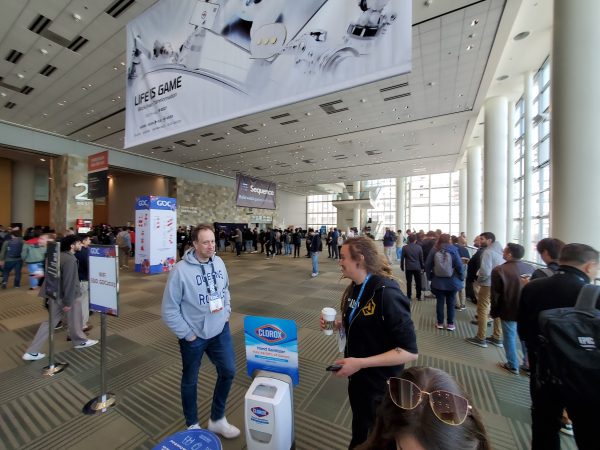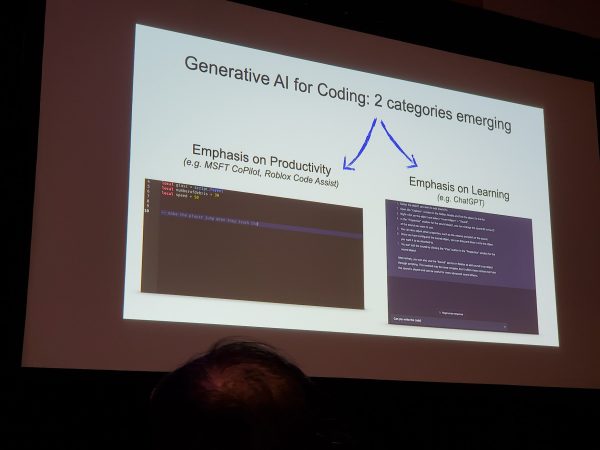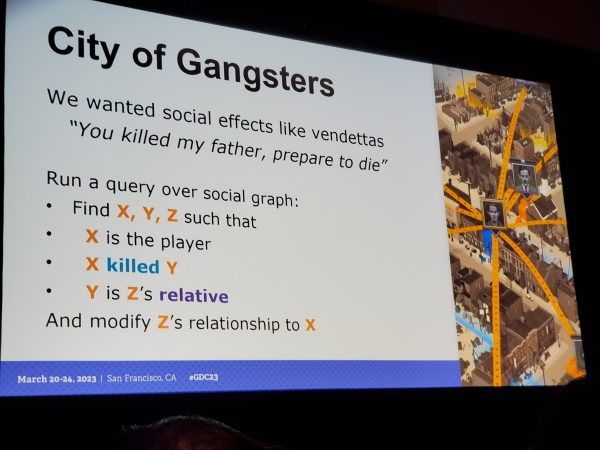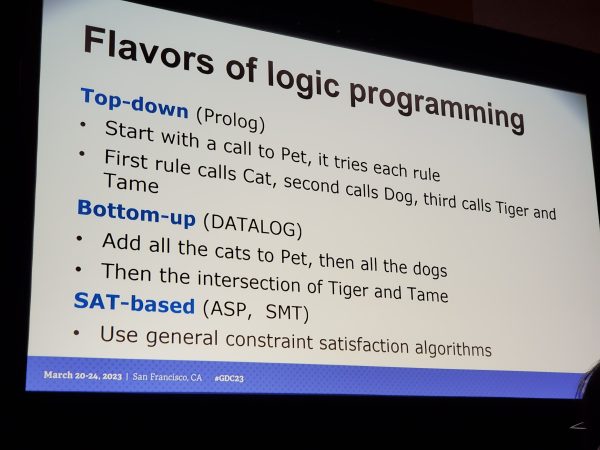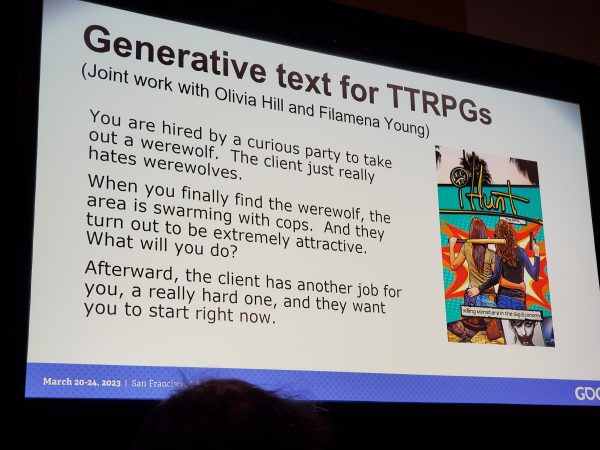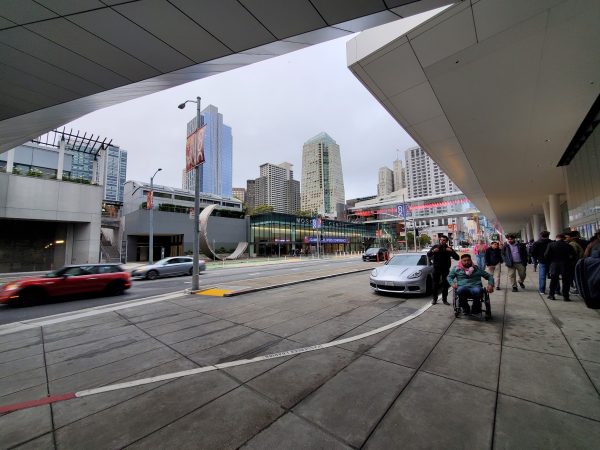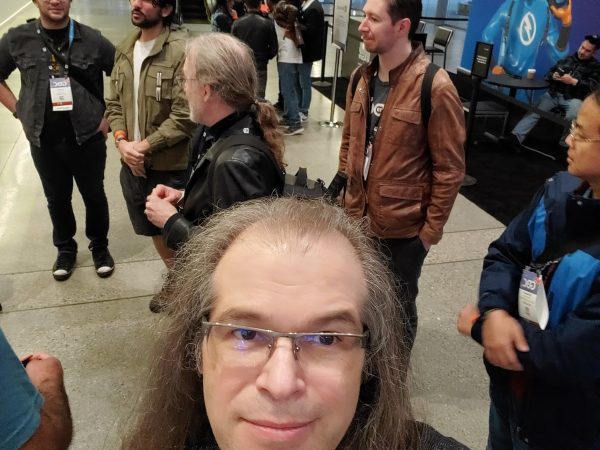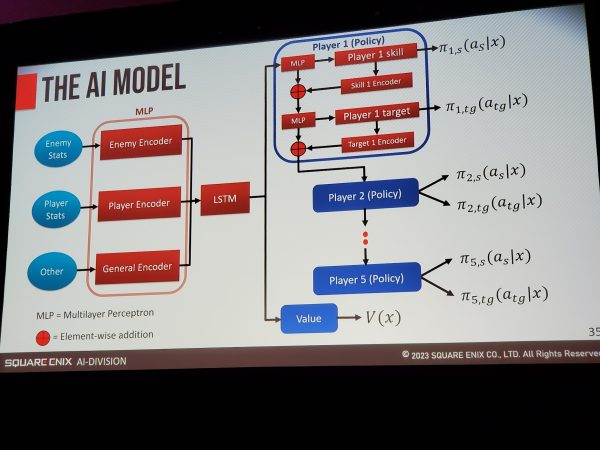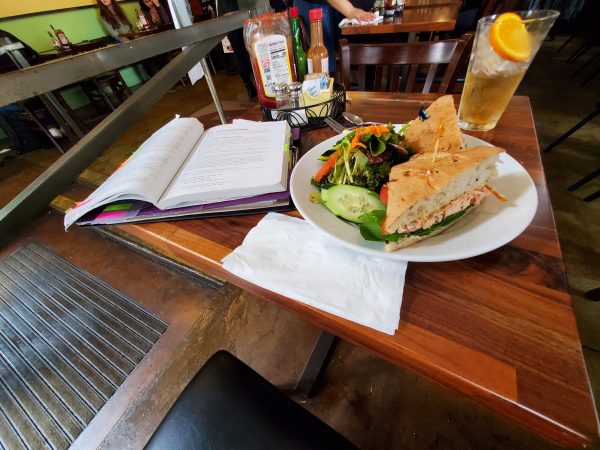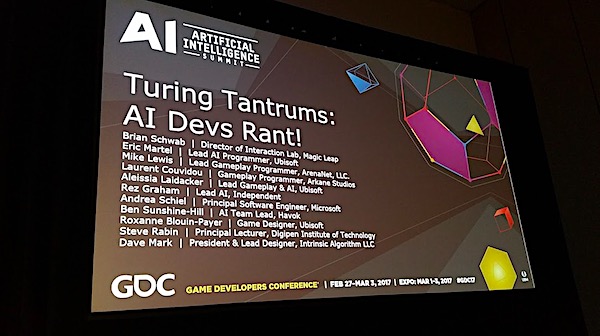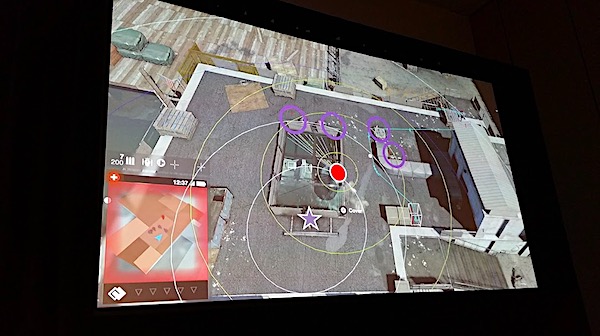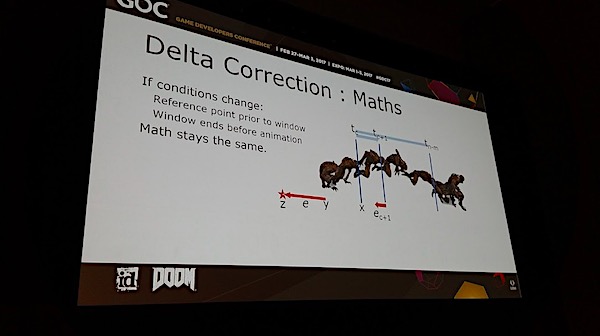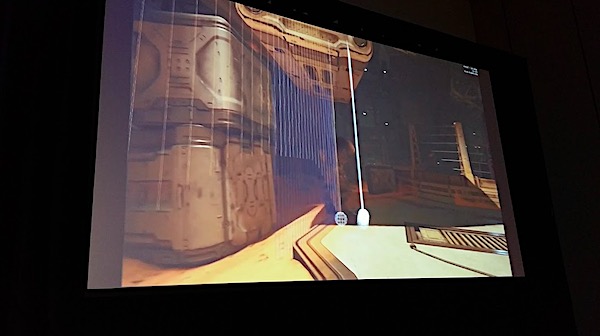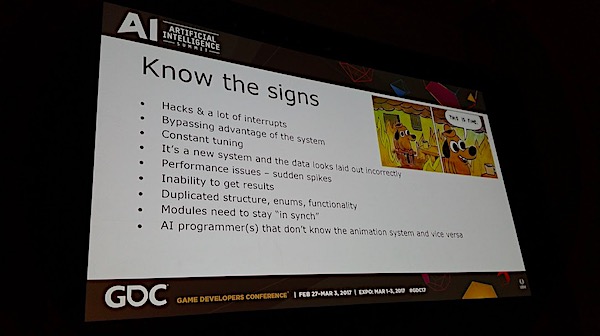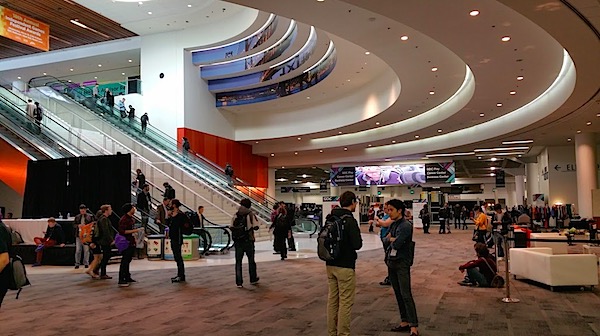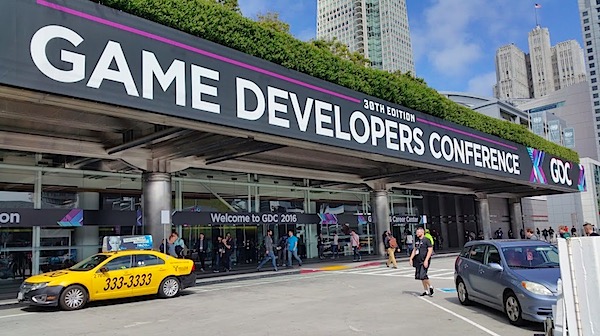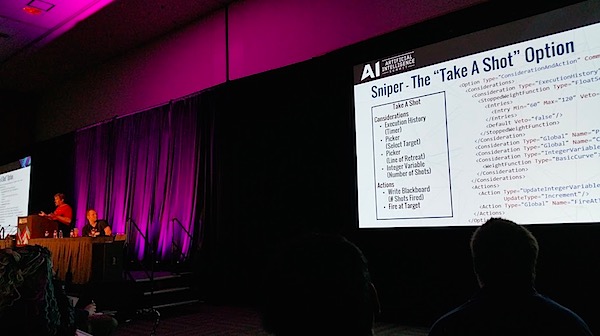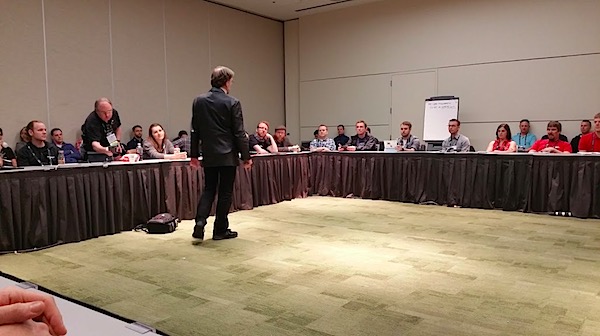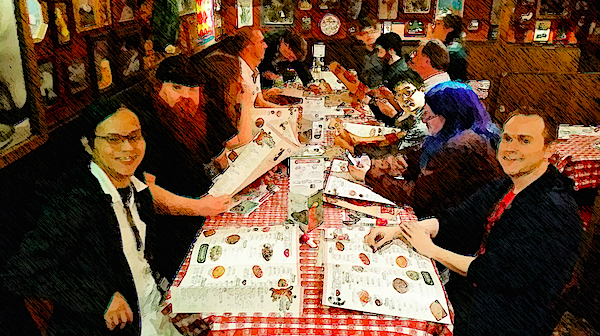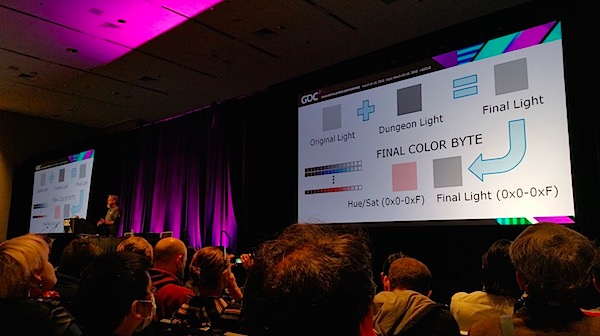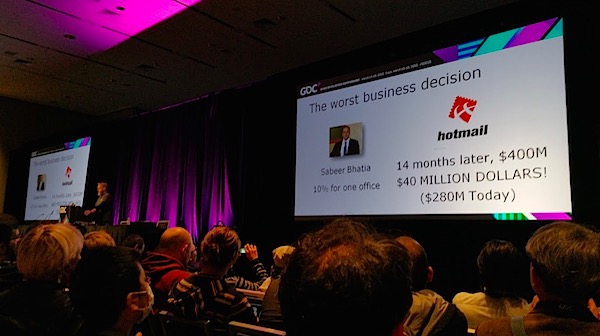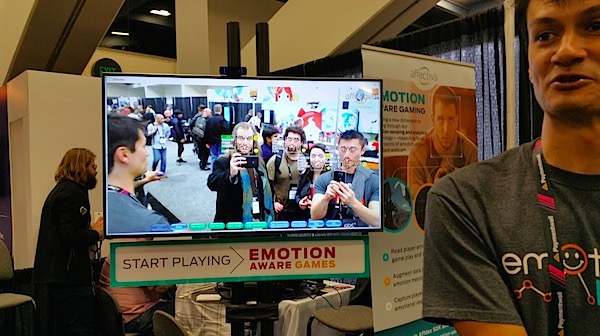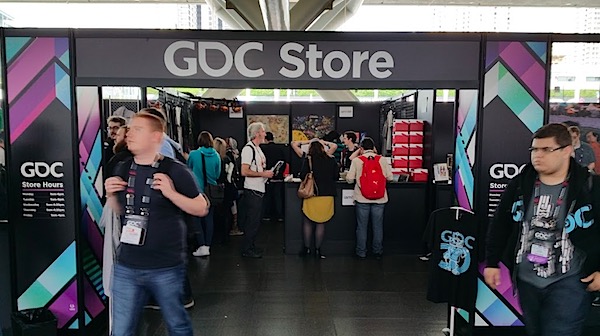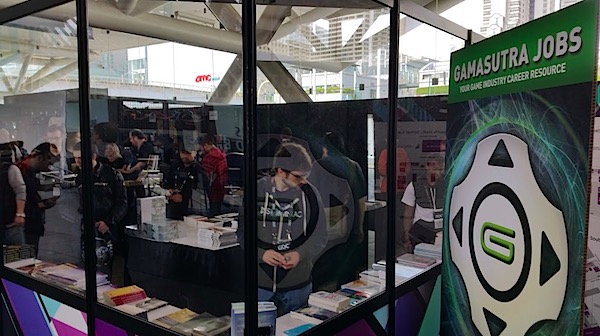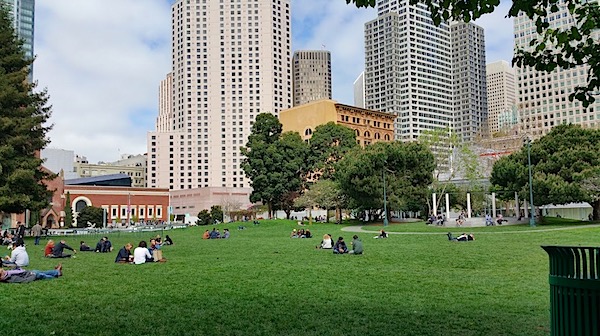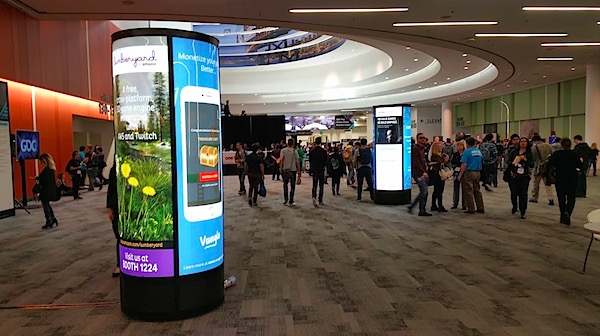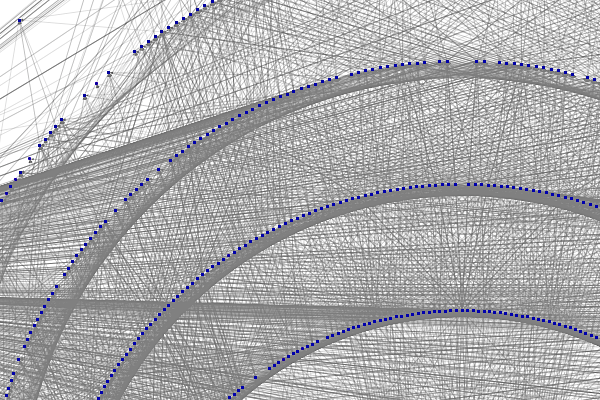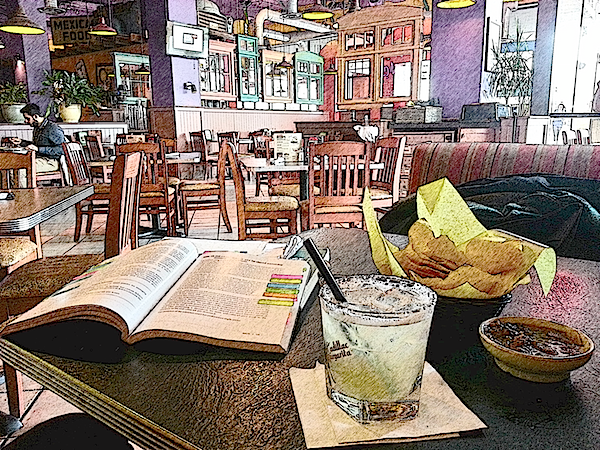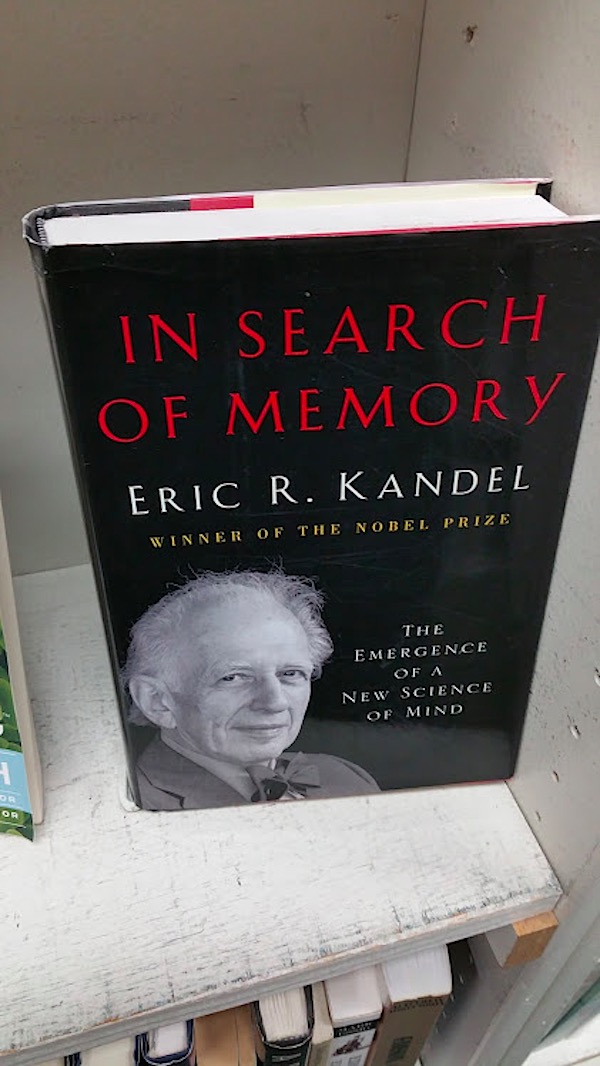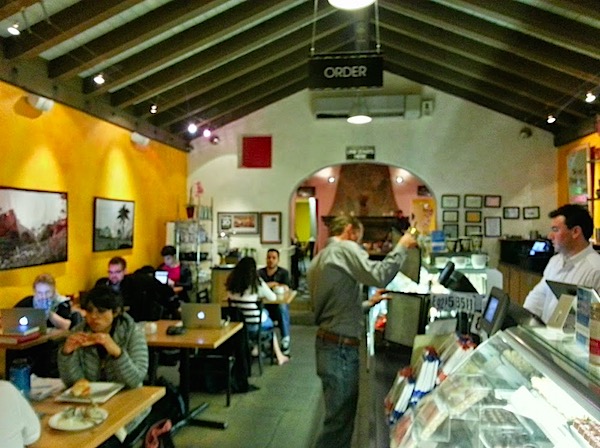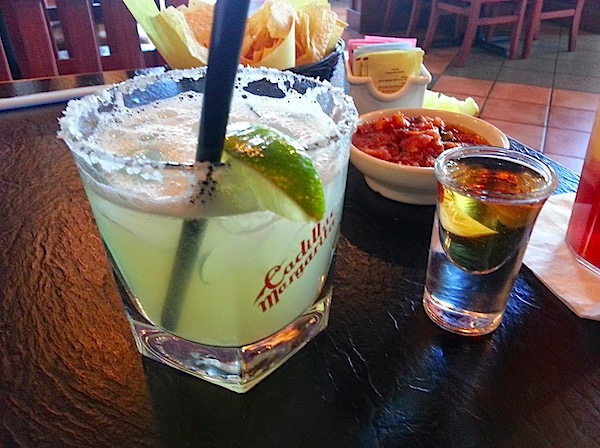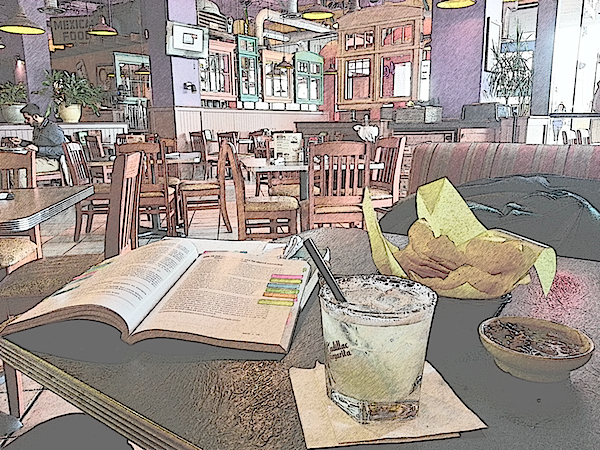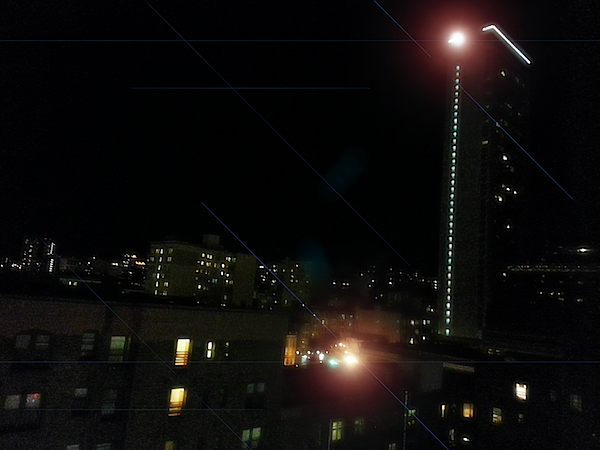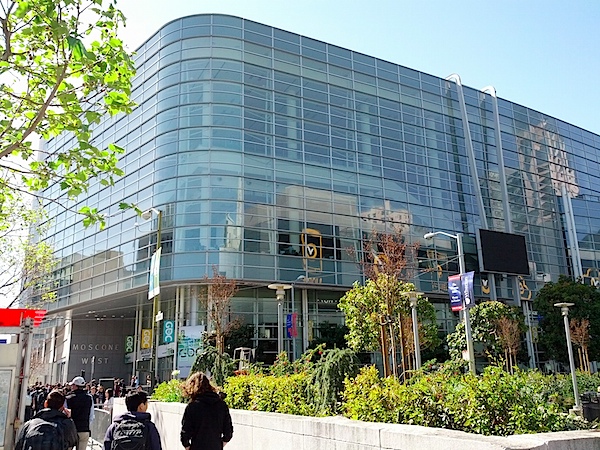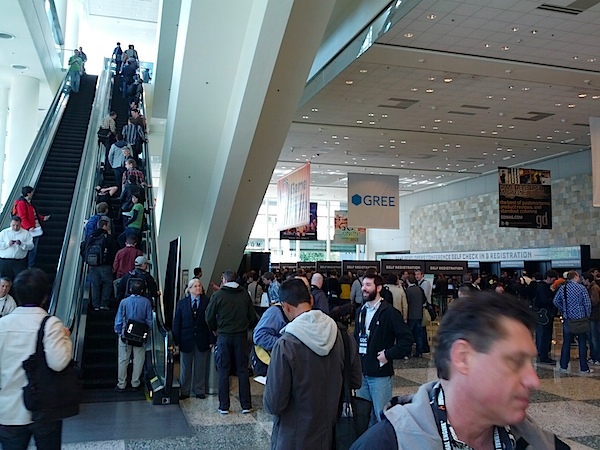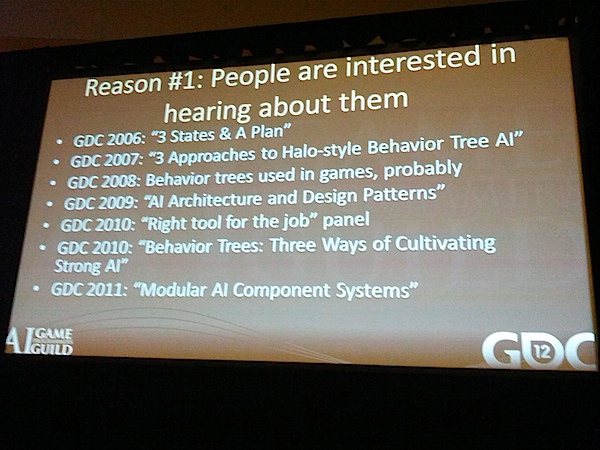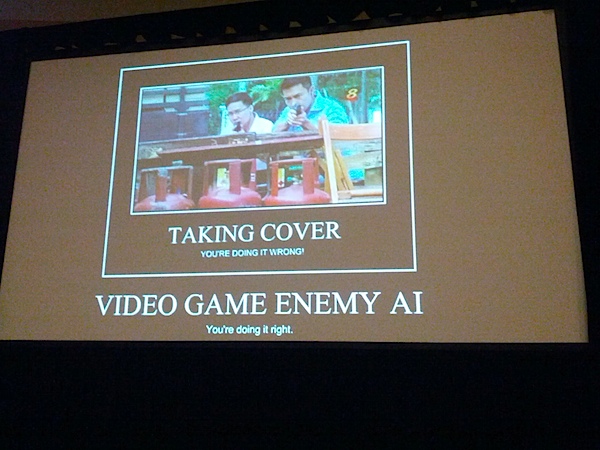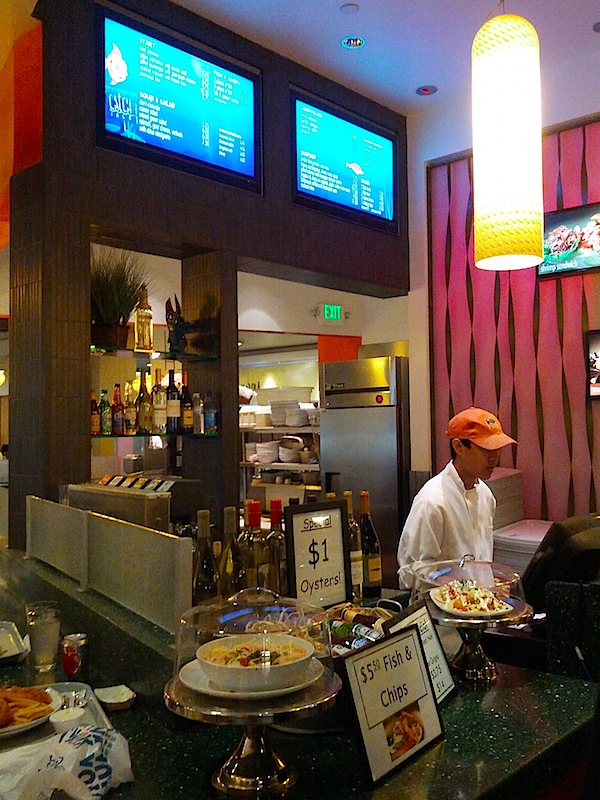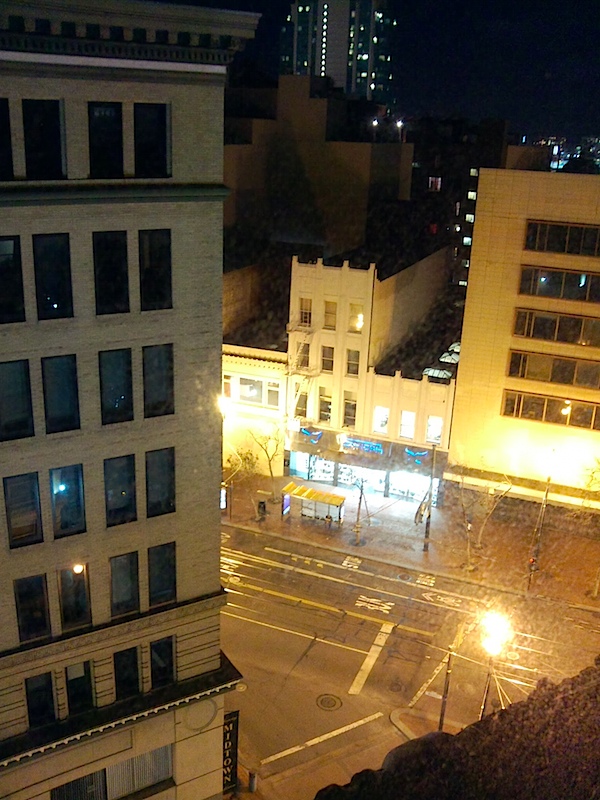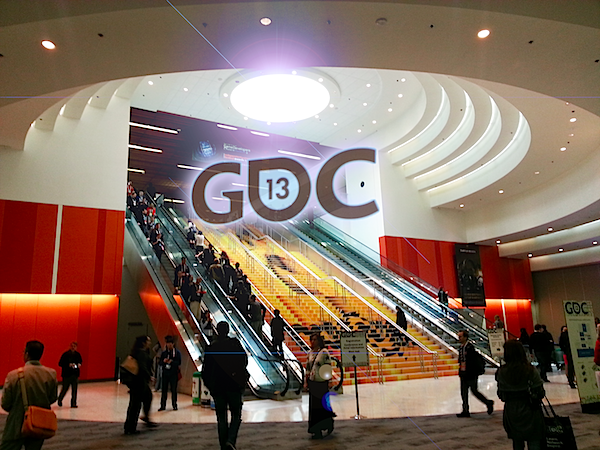
Once again it’s time for GDC, the Game Developers Conference. This annual kickstart to my computational creativity is held in the Moscone Center in San Francisco, CA and attracts roughly twenty thousand developers from all over the world.
I’m interested primarily in artificial intelligence for computer games– “Game AI” – and in the past few years they’ve had an AI Summit where game AI programmers can get together to hear neat talks about progress in the field.
Coming from an Academic AI background, what I like about Game AI is that it can’t not work. The AI for a game must work, come hell or high water. It doesn’t need to be principled. It doesn’t need to be real. It can be a random number generator. But it needs to appear to work—it has to affect gameplay, and users have to notice it.
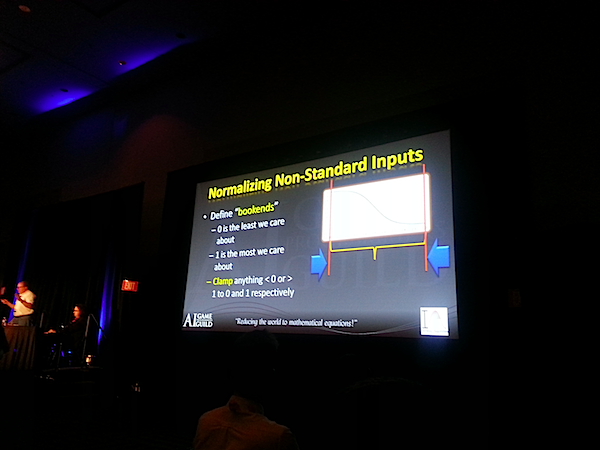
That having been said, there are an enormous number of things getting standard in game artificial intelligence – agents and their properties, actions and decision algorithms, pathfinding and visibility, multiple agent interactions, animation and intent communication, and so forth – and they’re getting better all the time.
I know this is what I’m interested in, so I go to the AI Summit on Monday and Tuesday, some subset of the AI Roundtables, other programming, animation, and tooling talks, and if I can make it, the AI Programmer’s Dinner on Friday night. But if game AI isn’t your bag, what should you do? What should you see?
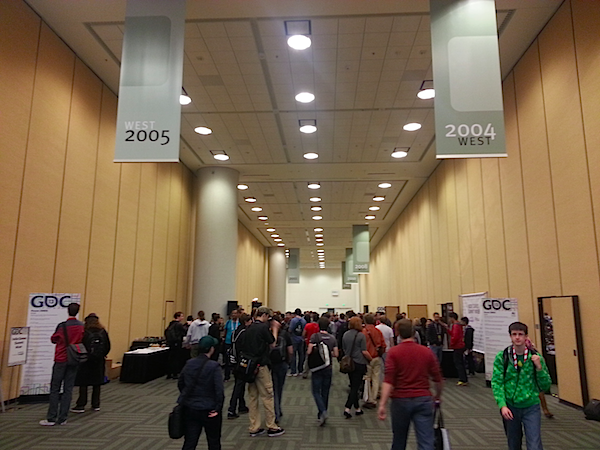
If you haven’t been before, GDC can be overwhelming. Obviously, try to go to talks that you like, but how do you navigate this enormous complex in downtown San Francisco? I’ve blogged about this before, but it’s worth a refresher. Here are a few tips that I’ve found improve my experience.
Get your stuff done before you arrive. There is a LOT to see at GDC, and every year it seems that a last minute videoconference bleeds over into some talk that I want to see, or some programming task bumps the timeslot I set aside for a blogpost, or a writing task that does the same. Try to get this stuff done before you arrive.
Build a schedule before the conference. You’ll change your mind the day of, but GDC has a great schedule builder that lets you quickly and easily find candidate talks. Use it, email yourself a copy, print one out, save a PDF, whatever. It will help you know where you need to go.
Get a nearby hotel. The 5th and Minna Garage near GDC is very convenient, but driving there, even just in the City, is a pain. GDC hotels are done several months in advance, but if you hunt on Expedia or your favorite aggregator you might find something. Read the reviews carefully and doublecheck with Yelp so you don’t get bedbugs or mugged.
Check in the day before. Stuff starts really early, so if you want to get to early talks, don’t even bother to fly in the same day. I know this seems obvious, but this isn’t a conference that starts at 5pm on the first day with a reception. The first content-filled talks start at 10am on Monday. Challenge mode: you can check in Sunday if you arrive early enough.
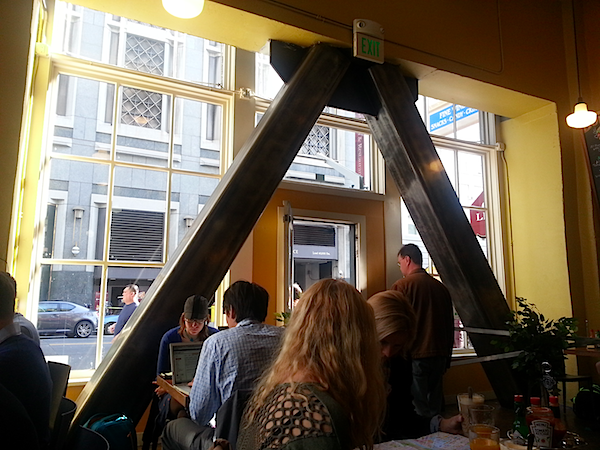
Leave early, find breakfast. Some people don’t care about food, and there’s snacks onsite. Grab a crossaint and cola, or banana and coffee, or whatever. But if you power-up via a good hot breakfast, there are a number of great places to eat nearby – the splendiferous Mo’z Café and the greasy spoon Mel’s leap to mind, but hey, Yelp. A sea of GDC people will be there, and you’ll have the opportunity to network, peoplewatch, and go through your schedule again, even if you don’t find someone to strike up a conversation with.
Ask people who’ve been before what they recommend. This post got started when I left early, got breakfast at Mo’z, and then let some random dude sit down on the table opposite me because the place was too crowded. He didn’t want to disturb my reading, but we talked anyway, and he admitted: “I’ve never been before? What do I do?” Well, I gave him some advice … and then packaged it up into this blogpost. (And this one.)
Network, network, network. Bring business cards. (I am so bad at this!) Take business cards. Introduce yourself to people (but don’t be pushy). Ask what they’re up to. Even if you are looking for a job, you’re not looking for a job: you want people to get to know you first before you stick your hand out. Even if you’re not really looking for a job, you are really looking for a job, three, five or ten years later. I got hired into the Search Engine that Starts with a G from GDC … and I wasn’t even looking.
Learn, learn, learn. Find talks that look like they may answer questions related to problems that you have in your job. Find talks that look directly related to your job. Find talks that look vaguely related to your job. Comb the Expo floor looking for booths that have information even remotely related to your job. Scour the GDC Bookstore for books on anything interesting – but while you’re here: learn, learn, learn.
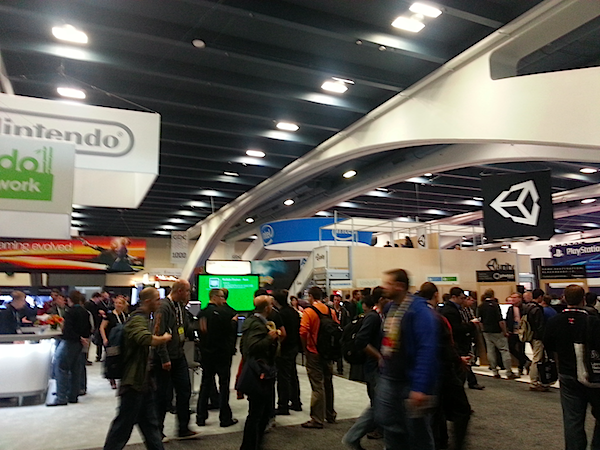
Leave early if you want lunch or dinner. If you don’t care about a quiet lunch, or you’ve got a group of friends you want to hang with, or colleagues you need to meet with, or have found some people you want to talk to, go with the flow, and feel comfortable using your 30 minute wait to network. But if you’re a harried, slightly antisocial writer with not enough hours in the day needing to work on his or her writing projects aaa aaa they’re chasing me, then leave about 10 minutes before the lunch or dinner rush to find dinner. Nearby places just off the beaten path like the enormous Chevy’s or the slightly farther ’wichcraft are your friends.
Find groups or parties or events to go to. I usually have an already booked schedule, but there are many evening parties. Roundtables break up with people heading to lunch or dinner. There may be guilds or groups or clubs or societies relating to your particular area; find them, and find out where they meet or dine or party or booze. And then network.
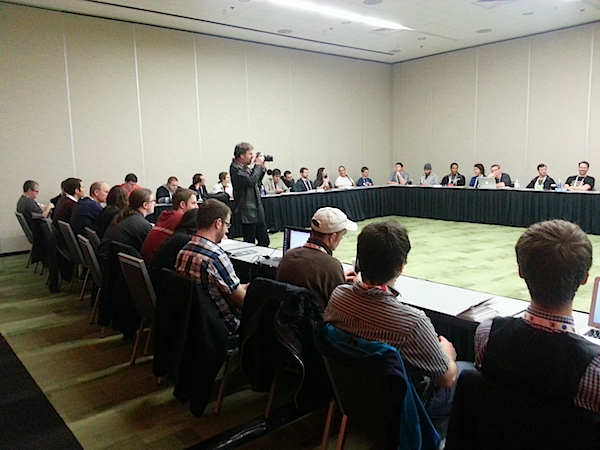
Hit Roundtables in person; hit the GDC Vault for conflicts. There are too many talks to go. Really. You’ll have to make sacrifices. Postmortems on classic games are great talks to go to, but pro tip: the GDC Roundtables, where seasoned pros jam with novices trying to answer their questions, are not generally recorded. All other talks usually end up on the GDC Vault, a collection of online recordings of all past sessions, which is expensive unless you…
Get an All Access Pass. Yes, it is expensive. Maybe your company will pay for it; maybe it won’t. But if you really are interested in game development, it’s totally worth it. Bonus: if you come back from year to year, you can get an Alumni discount if you order early. Double bonus: it comes with a GDC Vault subscription.
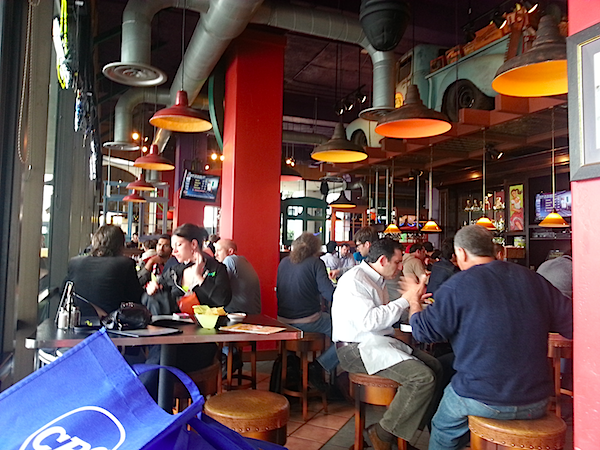
Don’t Commit to Every Talk. There are too many talks to go to. Really. You’ll have to make sacrifices. Make sure you hit the Expo floor. Make sure you meet with friends. Make sure you make an effort to find some friends. Make time to see some of San Francisco. Don’t wear yourself out: go to as much as you can, then soak the rest of it in. Give yourself a breather. Give yourself an extra ten minutes between talks. Heck, leave a talk if you have to if it isn’t panning out, and find a more interesting one.
Get out of your comfort zone. If you’re a programmer, go to a design talk. If you’re a designer, go to a programming talk. Both of you could probably benefit from sitting in on an audio or animation talk, or to get more details about production. What did I say about learn, learn, learn?
Most importantly, have fun. Games are about fun. Producing them can be hard work, but GDC should not feel like work. It should feel like a grand adventure, where you explore parts of the game development experience you haven’t before, an experience of discovery where you recharge your batteries, reconnect with your field, and return home eager to start coding games once again.
-the Centaur
Pictured: The GDC North Hall staircase, with the mammoth holographic projected GDC logo hovering over it. Note: there is no mammoth holographic projected logo. After that, breakfast at Mo'z, the Expo floor, the Roundtables, and lunch at Chevy's.




